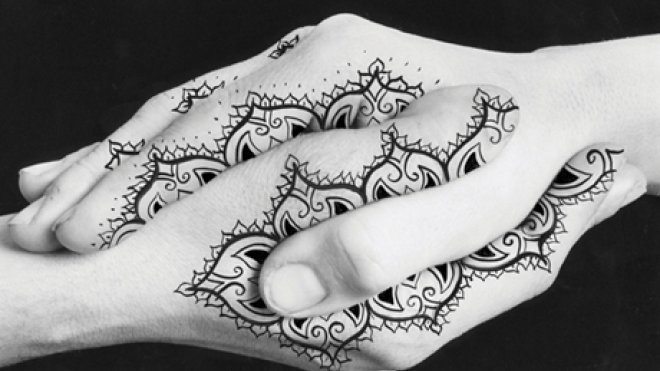Undergraduate Research Panel Kicks Off Conference on Religion and State

BRISTOL, R.I. -- The biannual Roger Williams University Conference on Religion and kicked off today, hosting scholars from across the globe to investigate “Narratives and Negotiation: Agency, Religion and the State.
For the first time, this year’s conference opened with an undergraduate research panel featuring Roger Williams University students from across the disciplines.
“One of the core values at Roger Williams is student/faculty research, and that happens a lot in the sciences, and some of the other areas of the school,” said Assistant Professor of American Studies Jennifer Stevens, a moderator for this year’s conference.
One way faculty can engage with students in research, Stevens pointed out, is to encourage them to approach their research professionally and submit their papers to present at academic conferences. Stevens recently participated in the annual Popular Culture Association/American Culture Association National Conference in Washington, D.C., where four additional RWU faculty and 17 students presented research to hundreds of scholars from around the U.S. She noted how wonderful an experience it was for the students not only to observe the conference, but also to participate in it. And whether students choose to pursue graduate studies or enter the workforce, the experience of presenting at an academic conference will serve them well, Stevens added:
“If you go on in academia, obviously it’s an experience you’ll have many times over and hopefully this will help prepare them, but it also excites them about the possibility of doing that.” she said. For those who pursue non-academic careers, “that idea of being in a professional environment and sharing your ideas and taking questions and participating in a intellectual dialogue – there’s nothing bad that can come from that. And all that can do is give people more confidence, and another opportunity to practice skills that happen out here in the real world in all kinds of ways. There are very few jobs where you don’t have to stand up in front of colleagues or co-workers and share your ideas. And the better you are at that, or the more experience you have at that, the more confident you’re going to be and that always makes for a better presentation.”
Senior history and secondary education major Emily Masseo, who served as the Student Assistant for the Religion and the State Conference, presented her research on the Assyrian Genocide. a minority in the Middle East. According to scholars and the international community, the genocide of the Assyrians – a minority population in the Middle East – occurred from 1914-1918. Masseo contends that the genocide did not just happen during that time period, and it was not “the response of a collapsing empire, the Ottoman Empire, but rather that there were genocidal intentions starting in the 1840s up through the new republic of Turkey in 1924.”
Two scholars who have influenced Masseo’s research, Hannibal Travis and Aryo Makko, are attending the weekend-long conference.
“The Assyrian genocide in general isn’t well researched or well-documented, so [I’m] definitely looking forward to getting feedback from people,” Masseo said. She also noted that this feedback could help her with her writing and research that she will continue throughout the semester. “It’s also a good opportunity to grow as a professional or as an academic, being able to present in this setting.”
Tom Sojka, a history and political science major, presented his research paper, “Women of Allah: The Veil, Shirin Neshat, and Revolutionary Women in Islamic Society,” about Iranian-born artist Shirin Neshat’s work as it relates to the role of women in Iran and Islam.
According to Sojka, Neshat's work has been shown worldwide, including at Castello di Rivoli, the Serpentine Gallery, and the Sundance and Cannes Film Festivals. While Neshat is not banned from Iran, her artwork is. Her position as an ex-insider who has been culturally and socially marginalized allows her personal experience to expose the position of women in a theocracy, Sojka noted.
“I think undergrads have a lot to say and we’ve largely been unrecognized as able to make significant contributions to the field, which is unfortunate because a lot of us – especially at Roger Williams – have work done on individual basis with faculty members. So I think we do have quite a bit to say to contribute to the study of history,” he said.
Other undergraduate presentations included:
- Kevin Marchand (Creative Writing), “Divided Beliefs and Common Suffering: Islam and Christianity in Nigeria”
- Kyle Sandler (History), “The Rabbi and the Ayatollah: Theocracy in Israel and Iran
- Nicole David (History), “Social Engineering: Stolen Babies of Spain”
The Religion and the State Conference was founded in 2007 by longtime RWU Professor of History Joshua Stein, who passed away in September after an 18-year battle with cancer. The event has evolved over the years from a one-day symposium to a weekend-long conference with two keynote speakers and multiple panel presentations.
“He was just really struck that this is a school named for one of the great supporters, and one of the great kind of historical figures, who was associated with this idea of the relationship between religion and state, and that to have a school named after Roger Williams ought to have some sort of recognition of that,” Stevens said of Stein.